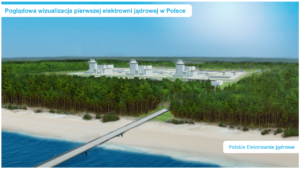The duration of the contract and the annual gas trade – these are important and symbolic information that break through the contracts for LNG supplies from the USA signed by PGNiG. The most intriguing, however, is the economic side of the contract, which we can not have insight in due to the confidentiality of the contracts. LNG technology is becoming more and more popular and it will be to mitigate its biggest disadvantages in the future, that is costs. Popularizing each technology makes them cheaper – said Paweł Poprawa in an interview with BiznesAlert.pl.
According to Paweł Poprawa, agreements like those signed by PGNiG regarding the implementation of projects that do not yet have all environmental approvals is not subject to risk, because usually such contracts include so-called clauses and terms of withdrawal from the contract. On the other hand, making deals at the initial stage is an opportunity to get the most favorable price. – This is a matter of better pricing conditions and reserving terminal transmission capacity. At the initial stage, companies engage in such projects, and they take into account the conditional implementation of the contract. This is not a surprising or risky step. In the case of LNG, the fundamental element is the price of gas. The costs of LNG technologies, ie liquefaction, transport and regasification, are high, amounting to about 150 dollars for 1000 m3 on the route from the USA. This price should be added to the gas price on the exporter’s market. It is therefore crucial that LNG is competitive on the recipient’s market. At low gas prices, negotiating a large contract in advance is an option to get better prices – said the expert.
He emphasized that the given price formulas included in contracts are a derivative of economics. – The free on board formula will have a completely different economic model than the one that says about the full responsibility of the supplier, up to the recipient’s port. However, this is a confidential element of the contract and we can not assess it without knowing the details – he added.
Poprawa added that the clause contained by PGNiG gives the company a chance to become a global player on the LNG market. So far, the company has focused on the Baltic Sea region. We see that by adding purchased LNG from the US and from Qatar there is a surplus of raw material. The company may thus become an LNG supplier at other points in the Baltic Sea basin. At the moment, however, if there are opportunities to trade LNG on global markets, then they can find a place where the price will be attractive. It can not be ruled out that this gas may even reach the Asian markets, where gas prices are highest. European markets, unlike Asia, are under the pressure of Gazprom, which has very low production costs. So the Russians are always competitive, so that they go down to a price with which it will be difficult to compete. However, it should also be remembered that the Russians currently incur large capital expenditures on new trans-European pipelines, which somewhat limits their possibilities. It is worth noting that the new PGNIG contract is, firstly, a long-term contract (for 20 years), and secondly its scale is impressive. Its volume is significant, what would dominate the possibility of receiving raw material at the LNG terminal in Świnoujście.
Paweł Poprawa reminded that in the context of LNG supply contracts with the USA one of the prudent options is still the construction of a new, floating LNG terminal in Gdańsk (with a lower capacity than in Świnoujście). – This opportunity as I understand it is still in the game in case of problems with the implementation of the Baltic Pipe project, whose schedule is very tight but realistic. If anything would happen that would delay this project then we lose any negotiating position at the end of the Yamal Contract. The Russians could use such a situation, accepting only a long-term contract, not one or two-year contract. So there are ideas how to protect against a possible slowdown in the construction of this gas pipeline – said Poprawa.








